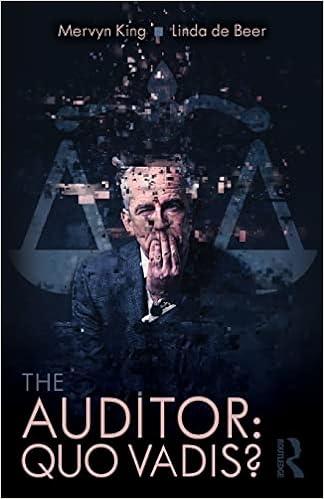Answered step by step
Verified Expert Solution
Question
1 Approved Answer
You are a well-respected financial planning group, based in Markham, Ontario. Two of your longest-tenured clients, who are permanent Canadian residents, Dr. and Mrs. Tang,
You are a well-respected financial planning group, based in Markham, Ontario. Two of your longest-tenured clients, who are permanent Canadian residents, Dr. and Mrs. Tang, both age 64 live in King City, Ontario, and are concerned about the Capital Gains associated with their Lakefront Family Cottage just outside of Bracebridge, Ontario. They have had the cottage for 25 years, and they absolutely love it and dont mind the approximately 90-minute drive (in good traffic) to get to the cottage. As you have heard them say so many times describing their time there, sitting on the deck or dock and letting the stresses of life wash away. As you know the family so well, the Tangs have a son age 38 (who has had various occupations since graduating High School and leaving College), and they also have a daughter age 40 who is a family Physician and lives in Markham. Their son Tommy is getting divorced from his first wife, they were living in Port Hope, Ontario, but since the separation Tommy has been living with the Tangs. Tommy is getting ready to move to Belleville, Ontario where his fianc and her family live and have a vacation home in the area. His ex-wife will have sole custody of their two children, as they have agreed to visitation rights for Tommy including spending every other weekend with Tommy, provided he has a suitable place to house them. His ex-wife and children will continue to reside in the family home in Port Hope. The Tangs daughter Tami is happily married to her husband of 10 years who is also a Physician. Now that Tamis children are school-age, the family love to travel to new places, and take full advantage of the time off when the kids are out of school. Dr. and Mrs. Tang come to you wanting to employ a strategy to transition the Capital Gains concerns of the cottage to their children before the burden of capital gains attached to the cottage, which will need to be paid at the death of the second spouse, become so significant that the cottage would almost have to be sold to cover the taxes.The Tangs have decided that the cottage is so important to the family, with the memories of all those weeks and weekends with their children and grandchildren, that they must do everything they can to ensure it gets passed down to the next generation. They admit that there is some strain in the family, especially between Tommy and Tami. They chalk this up to Tommysseparation and upcoming divorce, but they are hopeful that once he gets settled with his second wife, since he is engaged, then things will get better. In passing they mention that Tommy is frustrated with having to do the majority of the maintenance at the cottage, which in their minds is a small price to pay to relax in such a wonderful place. The cottage currently has an Adjusted Cost Base (ACB) of $750,000, and Fair Market Value (FMV) of $2,250,000. They have met with their accountant and discussed putting the cottage in a trust. They admit to only partially understanding the implications of this and were hoping you could clarify how this works with some basic explanations. While discussing this with their Accountant they recall hearing terms like future growth / Capital Gains and Probate Fees being a couple of the reasons the Trust made sense, there were others, but these stuck with them. They both think that this is a good idea for them. Because of this, you have arranged a meeting to discuss these findings. Note: Your answers should contain Canadian-only content. Any non-Canadian reference offered in this assignment that supports your response to any question asked will result in a deduction of 1 point per reference, with no limit. It is your responsibility to ensure that you are speaking to facts that pertain to Canadas Income Tax Act, and are consistent with the content that is Canadian-focused.Answer the following questions in complete sentences 1. In your own words, what is an inter-vivos trust? 2. Why would putting the cottage into an inter-vivos trust be a good strategy in this case ? 3. Are there other options to consider (suggestion: answer this after reviewing both parts of this assignment) ? 4. By proceeding with the transfer to an inter-vivos trust, what would be the taxable capital gain based on the ACB and FMV figures provided? Please keep in mind that the Tangs intend to use their matrimonial home as their principal residence, therefore for the purpose of this example assume there is no option to have the cottage benefit from the principal residence exemption. (show your work)If the sale of the cottage took place in January of the tax year 1994 at the same and ACB as indicated above, and the Tangs had never encountered Capital Gains prior, what, if any, would be the difference compared to question 4, in taxable capital gains on the disposition of the Cottage? In order to get full marks please ensure you show and explain your work on this
Step by Step Solution
There are 3 Steps involved in it
Step: 1

Get Instant Access to Expert-Tailored Solutions
See step-by-step solutions with expert insights and AI powered tools for academic success
Step: 2

Step: 3

Ace Your Homework with AI
Get the answers you need in no time with our AI-driven, step-by-step assistance
Get Started


